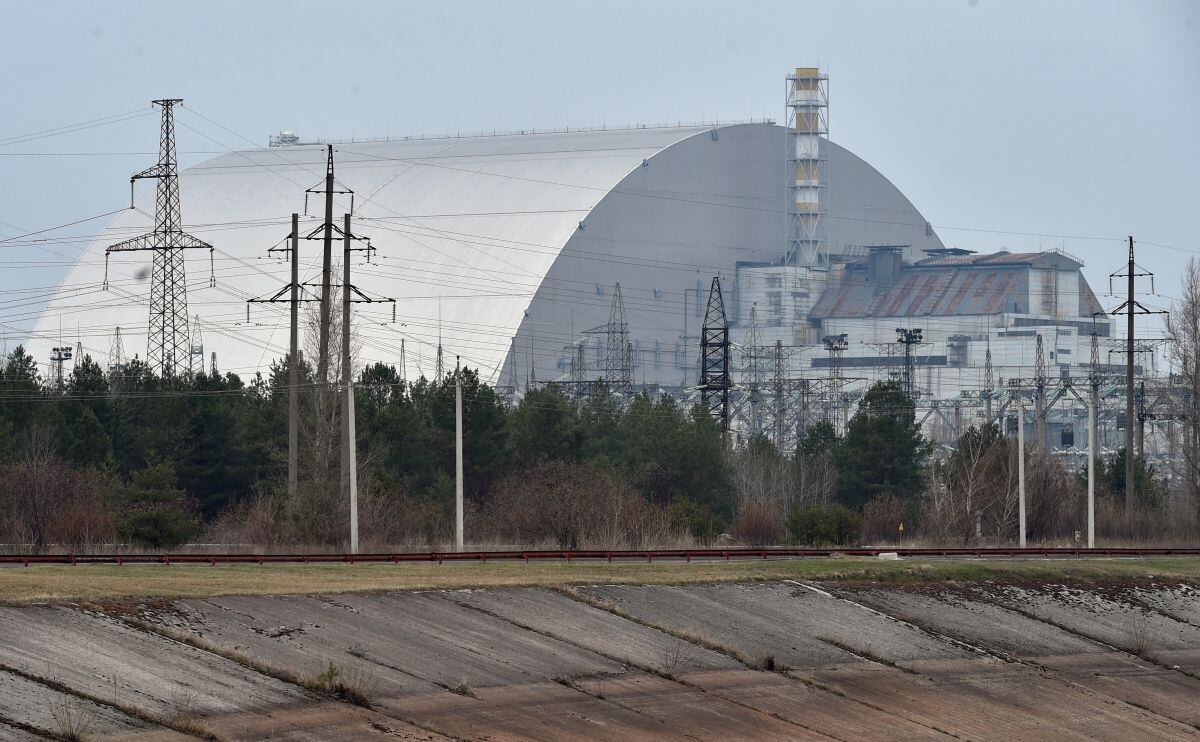
The IAEA, the UN nuclear agency, confirmed that the radiation levels recorded after the month of Russian military occupation of the former Chernobyl nuclear plant in northern Ukraine are high but not dangerous to health.
After his return from a visit to Chernobyl, IAEA Director General Rafael Grossi explained in Vienna that the radiation detected inside the earth excavations made by the Russians in the so-called “exclusion zone” near the plant is six times higher than normal.
However, this level of radiation -recorded the day before (Wednesday), by IAEA experts- is three times lower than the limit allowed for plant personnel, Grossi specified.
“We have no confirmation of a dangerous exposure to radioactivity,” said the director general of the International Atomic Energy Agency (IAEA).
The level of radioactivity detected in the Russian military excavations was the equivalent of an exposure of 6.5 millisieverts per year, while that allowed for employees of nuclear plants is 20 millisieverts per year.
After the Russian withdrawal from Chernobyl, on March 31, information emerged about an alleged lethal radioactive exposure for Russian soldiers who were in the exclusion zone.
“I would never recommend anyone to dig there, that was apparently a military order. But it is not a place to have a picnic or dig,” Grossi said.
The IAEA expert mission, led by Grossi, was in Ukraine this week to deliver measuring instruments and to restore telematic connections between the Chernobyl plant and the IAEA headquarters in Vienna.
“We went there to change an antenna. Since this morning we have received information from the site again”, explained Grossi, who has been warning since the beginning of the war about the nuclear dangers in the combat zones in Ukraine.
In Chernobyl, the biggest nuclear accident in history happened on April 26, 1986.
After visiting Chernobyl, which requires major maintenance work to prevent radioactive leaks, Grossi met in kyiv with the Ukrainian president, Volodímir Zelenski.
After meeting with Ukraine’s nuclear and political authorities, Grossi is scheduled to meet with Russian nuclear officials in the coming days and weeks.
Although Russian forces have left Chernobyl, they continue to occupy the Zaporozhye plant, the largest in Europe, located in the south of the country invaded by Russia since February 24.
Source: Gestion
Ricardo is a renowned author and journalist, known for his exceptional writing on top-news stories. He currently works as a writer at the 247 News Agency, where he is known for his ability to deliver breaking news and insightful analysis on the most pressing issues of the day.












